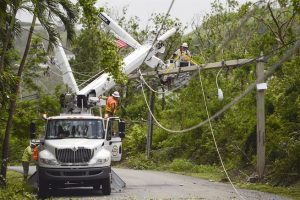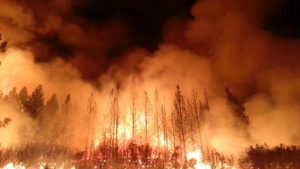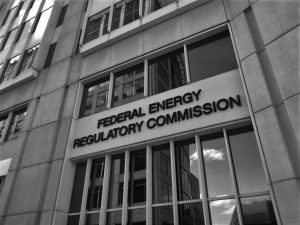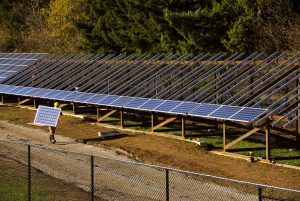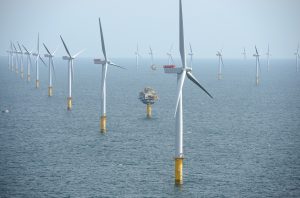587 item(s) were returned.
Ranking Member - Subcommittee on Public Lands and Environmental Regulations
U.S. House of Representatives
Donald Trump claims to have an “America First” energy plan. His administration’s actions over the past 10 months have made it clear that what he truly puts first are the interests of oil, gas and coal executives. Everyday Americans and our iconic American landscapes come last, if he considers them at all. Republicans used to label their policies “energy independence” and now call it “energy dominance,” but it looks more like the ransacking of our public lands and the fleecing of American taxpayers. The public wants a smarter way forward – an energy strategy that prioritizes renewables, takes climate change… [more]
View InsightThe Energy Futures Initiative, Inc. (EFI) is a nonprofit organization established by former Energy Secretary Ernest J. Moniz to provide policymakers, industry executives, NGOs and other leaders actionable options on how to advance a cleaner, safer, more affordable and secure energy future. Through its global network of experts, EFI develops and implements analytically-based, technology-informed, real-world low-carbon solutions for the world’s growing energy needs.
View InsightPresident
The Stella Group, LTD
According to the Fourth National Climate Assessment, humans are the dominant cause of global temperature rise, which many believe is directly responsible for the increased intensity of extreme weather events. The assessment shows that extreme events have cost the U.S.more than $1.1 trillion since 1980, and also warns that “The frequency and intensity of extreme high temperature events are virtually certain to increase in the future as global temperature increases”. We have only to look to Texas, Florida, and Puerto Rico where major hurricanes caused catastrophic damage to the electric grid creating heightened concern for resiliency. The inability to re-establish… [more]
View InsightManaging Director
Resourcient
Struck by fire and flood, first from two hurricanes enhanced by climate change, and then by heat and drought enhanced fires, our urge is to rapidly assist, fix and rebuild. A more thoughtful response should also address what exactly should be fixed, and how and where to rebuild with greater resilience. For Houston, Florida, Puerto Rico, and Napa and Sonoma Counties, these are gut-wrenching questions with few easy answers. The typical and very human response — quick rebuilds — is attractive to construction companies looking for work and banks providing short-term construction loans. Politicians and communities like them because they… [more]
View InsightCofounder
Spark Library
In late September, the Department of Energy (DOE) issued a Notice of Proposed Rulemaking (NOPR) for consideration by the Federal Energy Regulatory Commission (FERC). Using §403, a little-used provision in the DOE Organization Act of 1977, Secretary Perry proposed that FERC, an independent agency, exercise its authority to establish just and reasonable rates for wholesale electricity sales in the name of grid resiliency. Specifically, the NOPR requires ISO’s and RTO’s create special cost of service compensation for certain types of generation that DOE alleges are essential to protecting grid reliability and resiliency. Facilities would be eligible for this special, non-market… [more]
View InsightProfessor of Public Policy
Georgia Institute of Technology
On September 22nd, the U.S. International Trade Commission ruled that low-cost, imported solar panels from China and other countries have hurt two “domestic” manufacturers: Chinese-owned Suniva and German-owned SolarWorld. As a result of the ITC ruling, both companies are now insolvent. The ITC seems likely to recommend a steep increase in solar import tariffs. If the Suniva recommended tariff is implemented, the price of solar panels could double. Implementing such a “cure” for dumping international products into the U.S. marketplace could be devastating to our solar industry. It would hurt the expanding solar installation business, it would hurt U.S. racking,… [more]
View InsightClimate Nexus is a pro-bono, foundation-funded communications firm focused on climate and clean energy issues. We work to change the conversation from an argument to a constructive search for solutions. With backgrounds spanning science, journalism, government, public affairs, corporate sustainability, consulting, policy and filmmaking, our team brings these diverse skills to partners in the science, business, public health, environmental and policy fields.
View InsightDirector, Energy Democracy Initiative
Institute for Local Self-Reliance
A federal policy enacted nearly 40 years ago has breathed life into an ongoing argument at the Minnesota Public Utilities Commission over utility opposition to a wind and solar hybrid project proposed in the rural city of Red Lake Falls. The law, known as PURPA, was designed to promote local renewable generation by requiring utilities — even monopolies — to buy their electricity from qualified distributed and renewable facilities that can provide power at prices that roughly match the utilities’ “avoided cost” for electricity. But even after all this time, questions loom over exactly how to calculate that value. Utilities… [more]
View InsightResearch Analyst
Fuel Freedom Foundation
In the wake of Hurricane Harvey, the average price of a gallon of gasoline nationwide spiked by 25 cents, with some states seeing an increase of as much as 42 cents per gallon. This is the largest increase in a single week since the 49-cent jump following Hurricane Katrina in 2005. The fact that the entire nation’s fuel infrastructure can be disrupted by a localized single event is deeply concerning. In fact, our economy is disproportionately reliant on oil —10 of the previous 11 U.S recessions were preceded by a spike in oil prices (and subsequently gasoline). Indeed, as Michael… [more]
View InsightContributing Editor
Utility Dive
Offshore wind is not yet easy to build in the United States. But with offshore wind prospects looking bright, the question is no longer if a boom will happen, industry stakeholders say, it is when and how it will happen. However, policy follow-through will be a critical component of this growth, along with improving economics and other factors. While the U.S. had only one of the world’s 111 operating offshore wind projects as of the end of 2016, global developers are still setting up shop. Of the estimated 231,000 MW of potential capacity in the global development pipeline at the… [more]
View Insight
